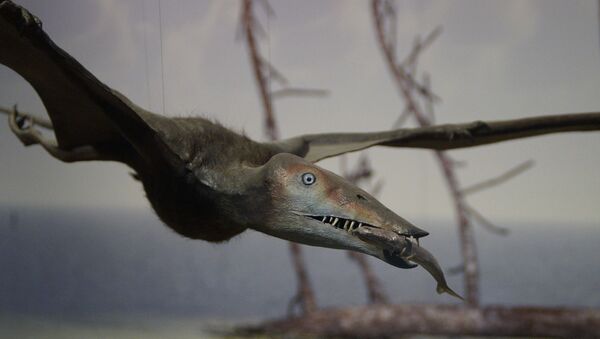A fossil of a dinosaur species usually only found in China and Brazil has been discovered in the UK for the first time, according to the BBC.
The fossilised jawbone from a pterodactyl was unearthed at Sandown Bay on the Isle of Wight and identified by a palaeontology student from the University of Portsmouth.
The jaw of the specimen — which has been dubbed 'Wightia declivirostris' — lacked teeth and is related to a group of pterosaurs known as the 'tapejarids'.
Another member of this group was found by researchers from the University of Portsmouth in Morocco, North Africa, last year and was named Afrotapejara.
“Although only a fragment of jaw, it has all the characteristics of a tapejarid jaw, including numerous tiny little holes that held minute sensory organs for detecting their food, and a down-turned, finely pointed beak,' said PhD student Megan Jacobs.
“Complete examples from Brazil and China show that they had large head crests, with the crest sometimes being twice as big as the skull.”
“The crests were probably used in sexual display and may have been brightly coloured.”
Professor David Martill from the University of Portsmouth, said: "This new species adds to the diversity of dinosaurs and other prehistoric reptiles found on the island, which is now one of the most important places for Cretaceous dinosaurs in the world."
The Isle of Wight fossil had been donated to Dinosaur Isle Museum at Sandown for future display.
The university's findings have been published in the journal Cretaceous Research.


